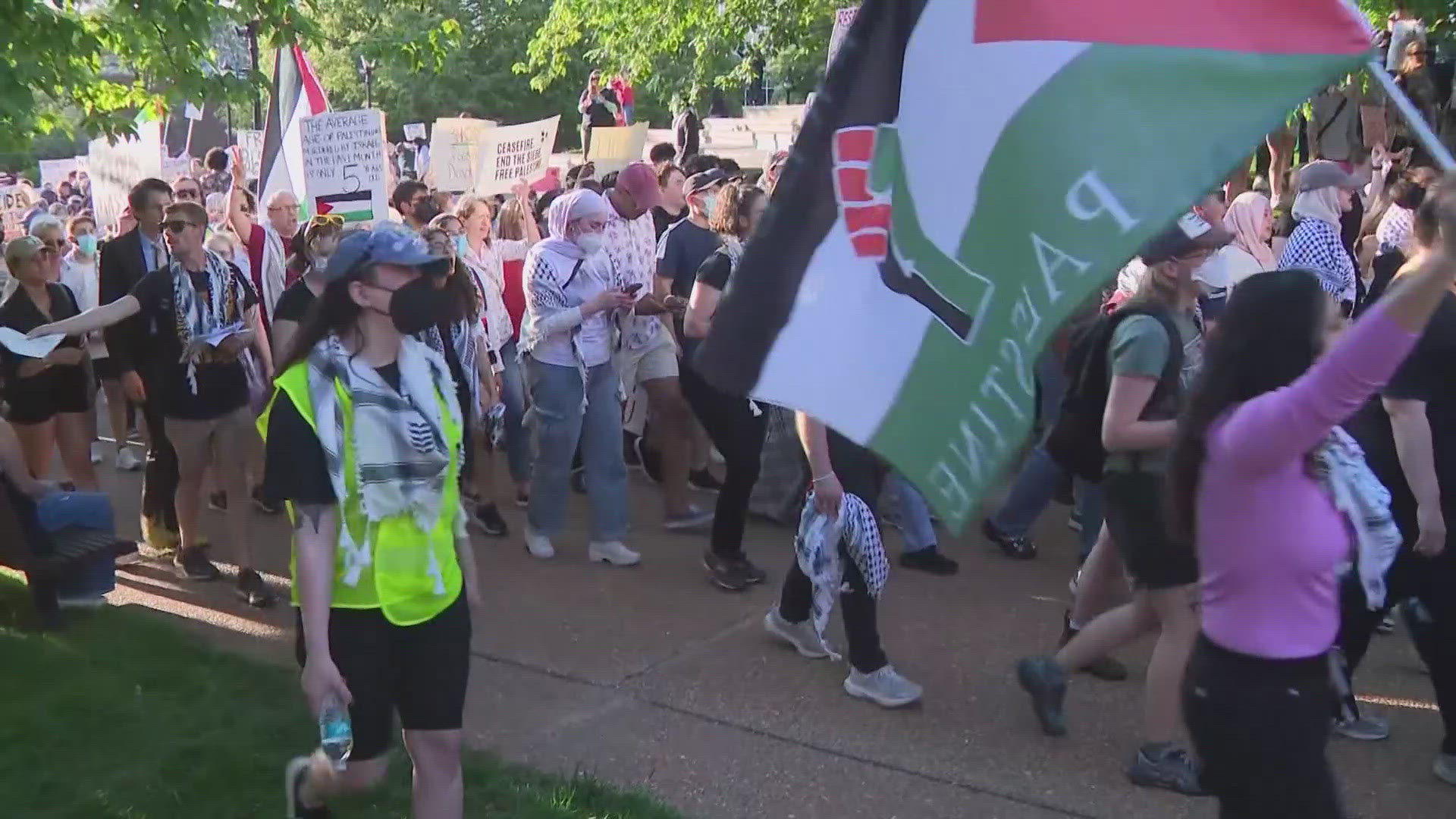ST. LOUIS — Up until now, 5 On Your Side has had limited contact with rabbis in the St. Louis area due to the Passover holiday that ended on Tuesday.
Wednesday, Rabbi Jeffrey Abraham at Congregation B'nai Amoona in Creve Coeur and Rabbi Jordan Gerson at WashU Hillel spoke out about the unrest that many in their congregations have been facing on college campuses and in the community.
"What's happening on these campuses is not a peaceful protest; it's a violent protest," Abraham said..
"It was very scary to hear these calls, these hate-filled calls for violence against my students, against the Jewish people around the world. It's been scary, and it's been sad to see how quickly this level of anti-Semitism is taking hold on our campus," Gerson said.
Both rabbis said they are optimistic about the protests at Saint Louis University on Wednesday evening.
"I really hope that it's a peaceful protest. I think that's absolutely acceptable. I really hope there are no calls for violence. I'm optimistic, but I have to be because the alternative is unbearable," said Rabbi Gerson.
Abraham said a big concern with the WashU protest was those not involved with the school who came onto the campus. He's hoping SLU will be able to keep non-students off campus.
"As we learned from the WashU protest, the majority weren't even WashU students. These groups are simply moving from one college campus to the next. These are just groups that are trying to be agitators instead of doing what's right for our larger community. My hope is that the SLU administration will do the right thing," Abraham said.
Later on Wednesday, hundreds of protesters filled the center of Saint Louis University's campus. The crowd held signs and chanted, "From the river to the sea."
"The U.S. House has recently declared the chant 'From the river to the sea' as hate speech as it calls for the destruction of Israel," Gerson said.
But people are at odds when it comes to what these phrases and words mean.
Jordan Kadosh with the Anti-Defamation League said that phrase and the call for "intifada" are seen as calls for violence and direct attacks on the Jewish community.
"I mean, they'd be calling for it to happen overseas, but the fact that people were calling for it here in our community, that's just out of line. And if we're going to talk about what's appropriate, and what isn't, and what's a peaceful protest, and what isn't, calling for violence is not a peaceful protest," Kadosh said.
Abraham said he has been speaking to the congregation about this at length.
"The last few days, I spoke about it from the pulpit, and made sure to really talk about how important it is that we stand up against the hatred that we see around us. And we have to use our voices and allow them to be heard," Abraham said.
Kadosh said antisemitism is on the rise at an alarming rate.
"Here in Missouri, the incidents have more than quadrupled. Year over year, we saw two-thirds of the incidents that we saw in our region last year, that have happened since Oct. 7, 2023. And so those numbers, those incidents, they've been growing for a while, this is not new, it's just a spike on top of a growing wave. And it's really disheartening, and people feel like they're under siege," Kadosh said.
Daniel Greenspon is a graduate student at SLU and proudly wears a Yamaca. He said he's had a tough time this year and actually avoided campus during the protest because of his concerns.
"Twice last semester, somebody came to me in the library and made a beeline to me, threw pennies at me and left. I have no reason to believe that they didn't have some sort of chat where they told somebody, 'Hey, it's your turn to throw something at the Jew,'" Greenspon said.
Gerson said their doors are open to offer emotional support to students after the SLU protest.
"We will offer support to any Jewish students and any other students who feel threatened or need counseling following that event," Gerson said.

